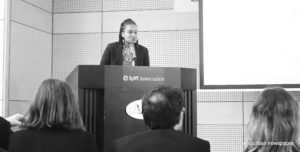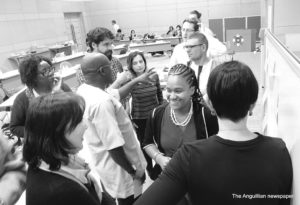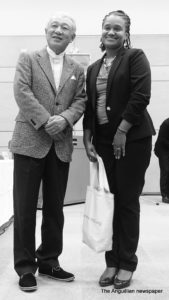More Lessons from Japan: Seed, Soil and Sprout
By Dr. Ronya Foy Connor

The second half of the Sasakawa Leaders Workshop in Japan took place just about one month ago, but the knowledge learned is worth years of insight. Mr. Yohei Sasakawa, the kind and smart Japanese philanthropist, sponsored this workshop through the Nippon Foundation, Sasakawa Young Leaders Fellowship Fund and Asia Pacific University.
I was grateful to be one of 20 fellows selected from 20 different countries, to add my knowledge and experience to a lively planning discussion on “Food Security 2030.” The other 19 professionals from around the world were some of the most intelligent and humble thought leaders that I have ever worked with.
We spent just about one week immersed in Japanese culture and small think tanks about world issues. We were able to tackle the theme of Food Security 2030 from the angles of economic development, agriculture production, race and gender-biases and technological advancements; – a range of disciplines that are not often associated with food.

The German-based facilitator team of Foresight Intelligence encouraged participants to use visioning exercises to imagine a dystopian and utopian view of our year 2030 world. We used the ideas of what we DO NOT want in order to determine what we DO WANT – what an ideal future would look like. I was pleased to learn that Foresight Intelligence is also doing work in the Caribbean and hopefully they can extend this same visioning to Anguilla and our national and community leaders.
This spring session of the Leaders Workshop taking place in Fukuoka, Beppu and Oita, Japan, was heavily focused on developing a project proposal, working within diverse teams, and delivering convincing presentations as if lobbying potential supporters and funders. In representing one of the current initiatives, that I am passionate about in Anguilla, I decided to combine the theme of global food security and methods to support survivors of abuse and violence.
My proposal called for a pilot project implementing therapeutic gardens as a means of stress-relief and holistic healing specifically for women survivors. To my pleasant surprise, the proposal was met with overwhelming support and 3 of the other 19 fellows decided to forgo their projects and assist with developing project details for this pilot in Anguilla, Greece and Bangladesh.

Mr. Sasakawa also took a liking to the idea since one of his favorite pastimes is tending to the soil. We both noted that there is no greater sense of accomplishment than to see a seed that is planted grow into a living and purposeful entity – both figuratively and literally. With the proper amounts of care and time, a vision can become a reality.
In harnessing my “lessons learned” in Japan, and applying them to Anguilla, I ask: What seeds are we sowing as individuals and as a nation of Anguilla? What are the power players or gardeners doing to nurture the planted seeds and provide the water and nutrients needed to see us rise? What are we each doing to tend to the soil and ensure that we do not let weeds run wild? When a bud begins to sprout, what protections do we create to ensure that it reaches full bloom – its greatest potential? How are you preserving and developing Anguilla not only in our seas but through our seeds?







